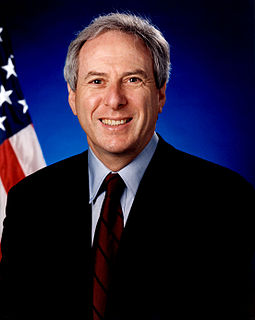A Quote by Konstantin Tsiolkovsky
To set foot on the soil of the asteroids, to lift by hand a rock from the Moon, to observe Mars from a distance of several tens of kilometers, to land on its satellite or even on its surface, what can be more fantastic? From the moment of using rocket devices a new great era will begin in astronomy: the epoch of the more intensive study of the firmament.
Related Quotes
Our first-party devices will light up digital work and life. Surface Pro 3 is a great example -- it is the world's best productivity tablet. In addition, we will build first-party hardware to stimulate more demand for the entire Windows ecosystem. That means at times we'll develop new categories like we did with Surface. It also means we will responsibly make the market for Windows Phone, which is our goal with the Nokia devices and services acquisition.
Did the Pilgrims on the Mayflower sit around Plymouth Rock waiting for a return trip? They came here to settle. And that's what we should be doing on Mars. When you go to Mars, you need to have made the decision that you're there permanently. The more people we have there, the more it can become a sustaining environment. Except for very rare exceptions, the people who go to Mars shouldn't be coming back. Once you get on the surface, you're there.
From the rocket we can see the huge sphere of the planet in one or another phase of the Moon. We can see how the sphere rotates, and how within a few hours it shows all its sides successively ... and we shall observe various points on the surface of the Earth for several minutes and from different sides very closely. This picture is so majestic, attractive and infinitely varied that I wish with all my soul that you and I could see it.
The rocket that goes up next March will not only lift a payload, it will launch what I believe will ultimately be the most significant commercial space facility in the country, ... This launch will be a brilliant signal flare that will let the nation and the world know New Mexico's spaceport is open for business. We can now say with certainty that the dream of this spaceport launching a new era in New Mexico's aerospace industry will become reality.
I love that moment in writing when language falls short. There is something more there. A larger body. Even by the failure of words I begin to detect its dimensions. As I work the prose, shift the verbs, look for new adjectives, a different rhythm, syntax, something new begins to come to the surface.


































